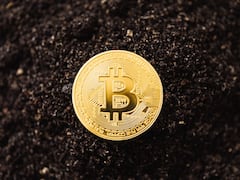How Inflation Affects Crypto: What Investors Should Keep In Mind
Since the supply of new Bitcoins is automatically reduced by 50 percent every four years, Bitcoin is essentially deflationary.

Inflation occurs when a fiat currency loses value over time, resulting in rising goods and services prices. Even though some economists believe that inflation might be good for the economy to an extent, this might also create an economic crisis. For example, the Indian government has printed more money than what the citizens need for decades, which is why goods are becoming much more expensive than before. Like gold, even Bitcoin also experiences inflation as it is mined. Since the supply of new Bitcoins is automatically reduced by 50 percent every four years, Bitcoin is essentially deflationary.
There are also fiat-pegged cryptocurrencies called stablecoins. There are cryptocurrencies that serve as utility tokens. These tokens serve some purpose to aid the project which it is associated with. Hence these tokens are similar to the equity of companies. These kinds of tokens are becoming increasingly popular in unstable economic markets.
If inflation erodes a dollar's value over time, people will start looking at assets such as cryptos that can outgrow the increase of inflation. It has been observed on multiple occasions that when a currency's price drops, crypto's value rises. This is because market participants look to store their value when the local currency goes down.
ALSO READ: How Crypto SIP Can Help Investors Achieve Long-Term Goals
Seeing the inflation increase, investors might choose cryptos over gold primarily due to two reasons. Crypto has the potential to generate higher alpha as compared to commodities. And it is less vulnerable to fluctuations in the US dollar. As a result, during the COVID-19 crisis, Bitcoin witnessed a spike in demand from a worthless token in 2010 to more than $60,000 in 2020. Since BTC is designed to resist inflation, its supply is limited, and the creation of new Bitcoins will taper off over time in a predictable way.
Any decisions of the US Federal Reserve or Reserve Bank of India on increasing the benchmark interest rates in response to inflation tend to reduce the demand for speculative assets, whether stocks or cryptos. It also slows down investor activity overall by making liquidity more expensive.
ALSO READ: What India's Digital Coin Market May Look Like In 2047
At times of recession, investors seek to invest in stable assets with a proven history, such as gold and silver. But in an environment where people have excess money, they feel confident to invest in cryptos. It can buffer crypto prices as investors look up to assets that can outperform inflation, even if that comes at a risk.
In India, the Consumer Price Index (CPI) spiked to 7 percent in August this year. In such times, commodities such as gold, silver, and iron, become less attractive investments. Investors prefer to buy and own cryptos as the market is designed to fight against inflation.
With many giant companies such as Microsoft, PayPal, and Starbucks accepting Bitcoin to buy goods and services, crypto is rapidly growing as a payment method. This might increase the value of Bitcoin and other cryptocurrencies at a rate more than inflation in the coming years.
(The author is the CEO and co-founder of Mudrex, a global crypto investing company.)
Disclaimer: The opinions, beliefs, and views expressed by the various authors and forum participants on this website are personal. Crypto products and NFTs are unregulated and can be highly risky. There may be no regulatory recourse for any loss from such transactions. Cryptocurrency is not a legal tender and is subject to market risks. Readers are advised to seek expert advice and read offer document(s) along with related important literature on the subject carefully before making any kind of investment whatsoever. Cryptocurrency market predictions are speculative and any investment made shall be at the sole cost and risk of the readers.







































